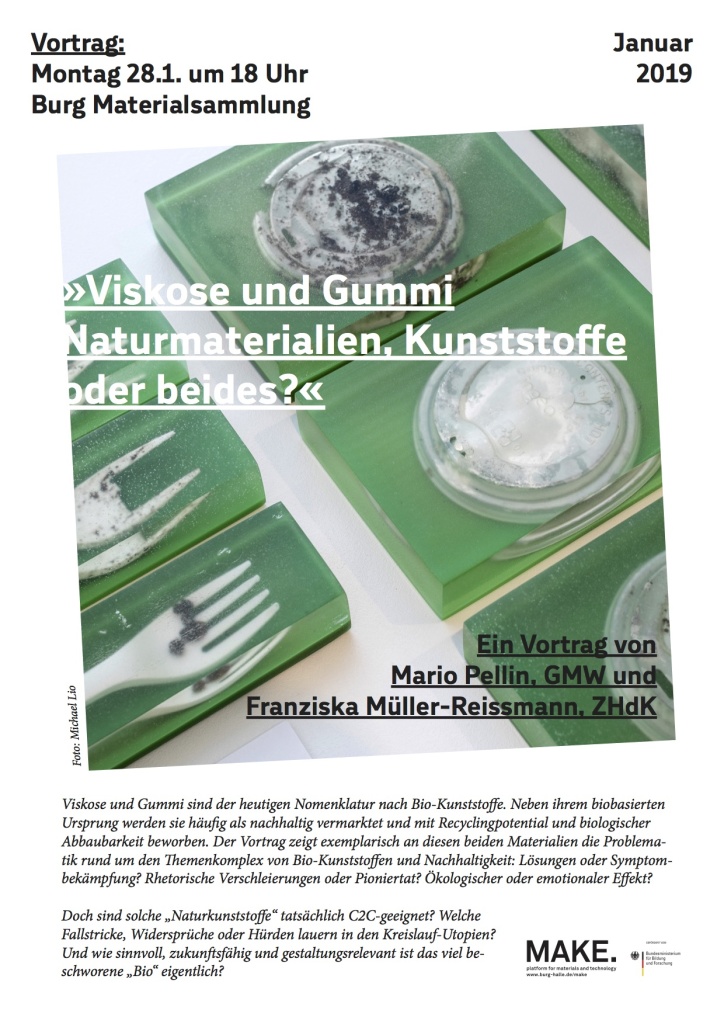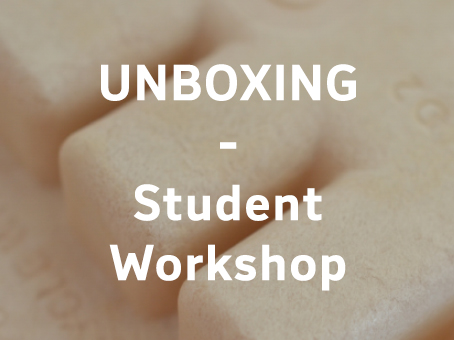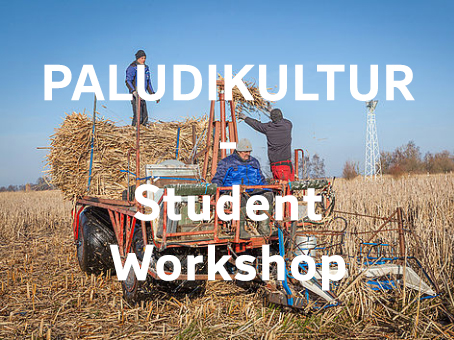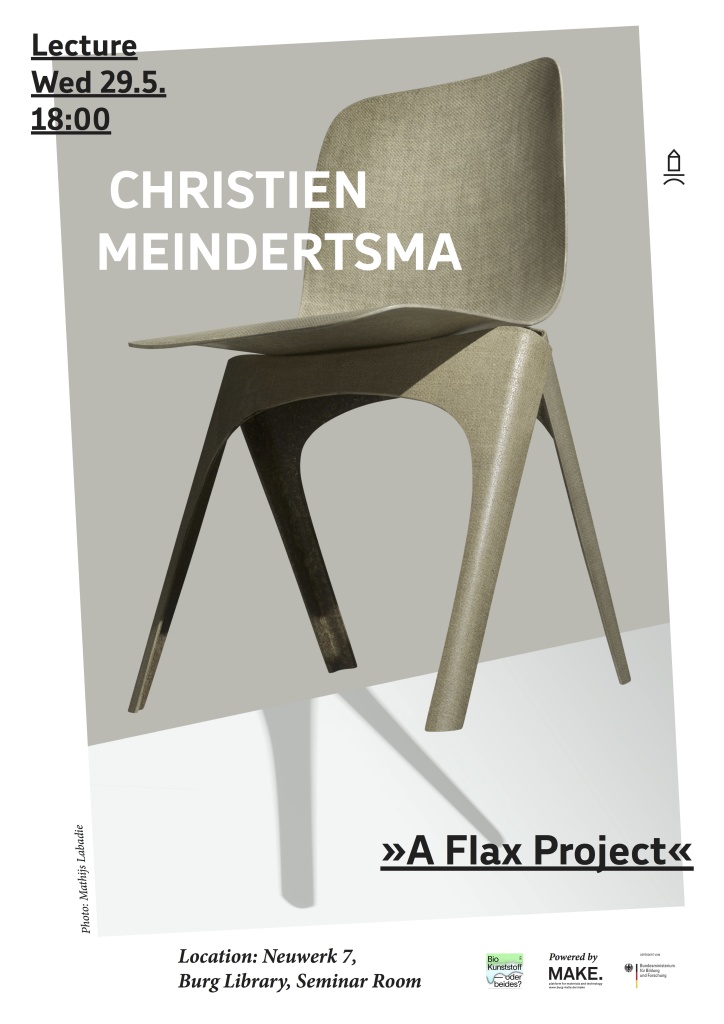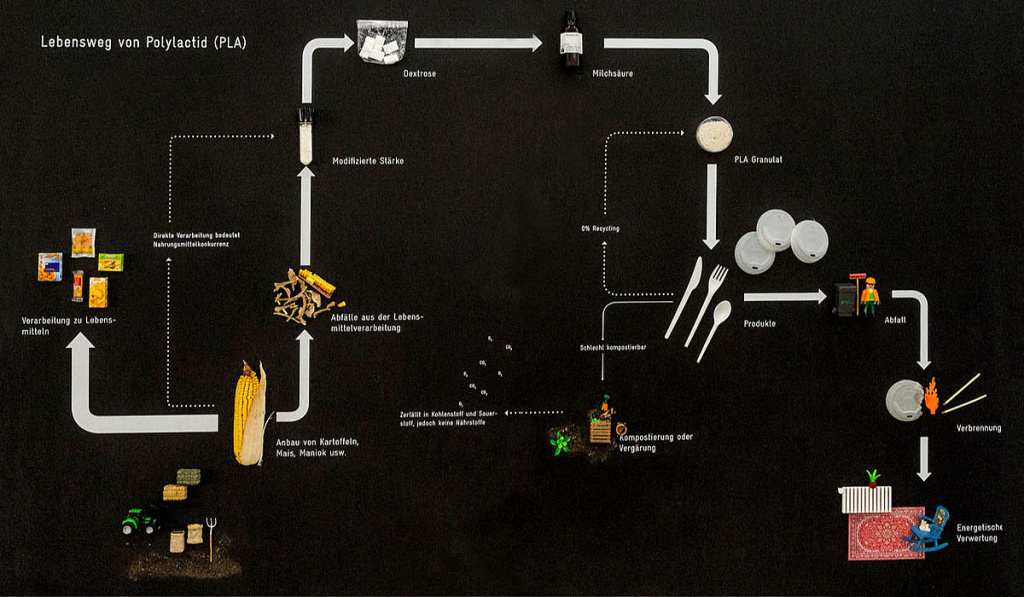Material of the Month (2013 – 2020)
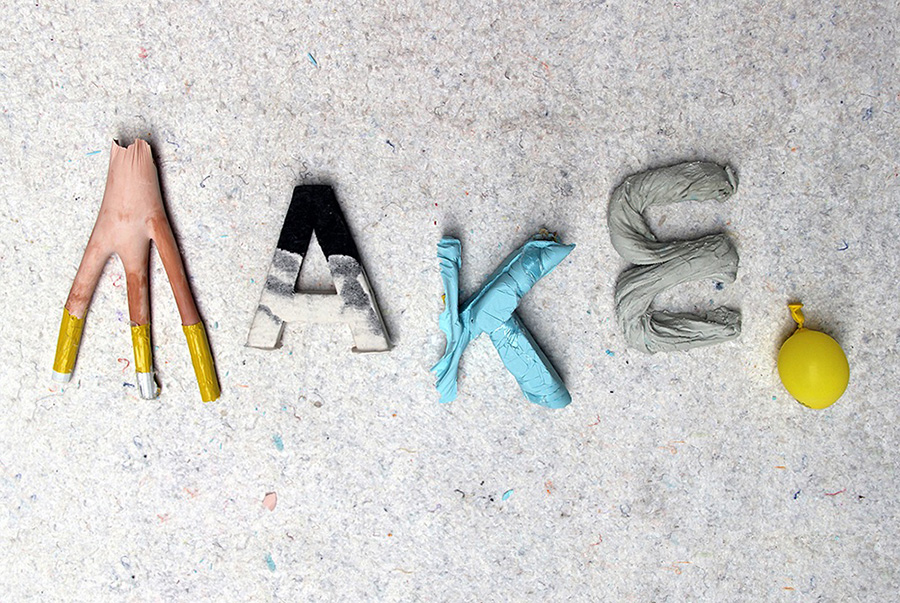
Material of the Month is an ongoing project where MAKE. offers new or unconsidered materials to be used in the projects of our BURG students. The only condition to document and share the ideas and experiments which have been realized with the sponsored material. For current or upcoming “Material of the Month” editions, please check our Weblog.
Suggestions?
Of course we would like to get your opinion. What is your substance of desire? Feel free to send your suggestions to make(at)burg-halle.de and we will do our best in getting your stuff at the BURG for future experiments.
What happened so far
2020
– Material Vending Machine: Corona created the “Materialautomat”
2019
– Material of the Month: Scrap Glass
– Material of the Month: Hanji Paper
– Material of the Month: Piñatex Vegan Leather Alternative
– Material of the Month: ThermHex Honeycomb Panels
2018
– Material of the Month: RELEA Recycled Leather
– Material of the Month: Precious Plastic
2017
– Material of the Month: Corn-based Bricks
– Material of the Month: Stone Paper
2016
– Material of the Month: Dutch Design Trash (Reuse)
– Material of the Month: Concrete Canvas
2015
– Material of the Month: Used Truck Tarps supported by FREITAG
– Material of the Month: Seaweed (with Julia Lohmann)
– Material of the Month: Mushroom (Die Welt)
– Material of the Month: 3D Printing (at the Digitale Werkstatt)
2014
– Material of the Month: Salt (Video)
– Material of the Month: Polycaprolactone (Video)
– Material of the Month: Beeswax (Video)
– Material of the Month: Tyvek (Video)
2013
– Material of the Month: Latex (Video)
– Material of the Month: Bamboo (Video)
– Material of the Month: Acrylic One (Video)
– Material of the Month: Kraftplex (Video)
Precious Plastic x Burg
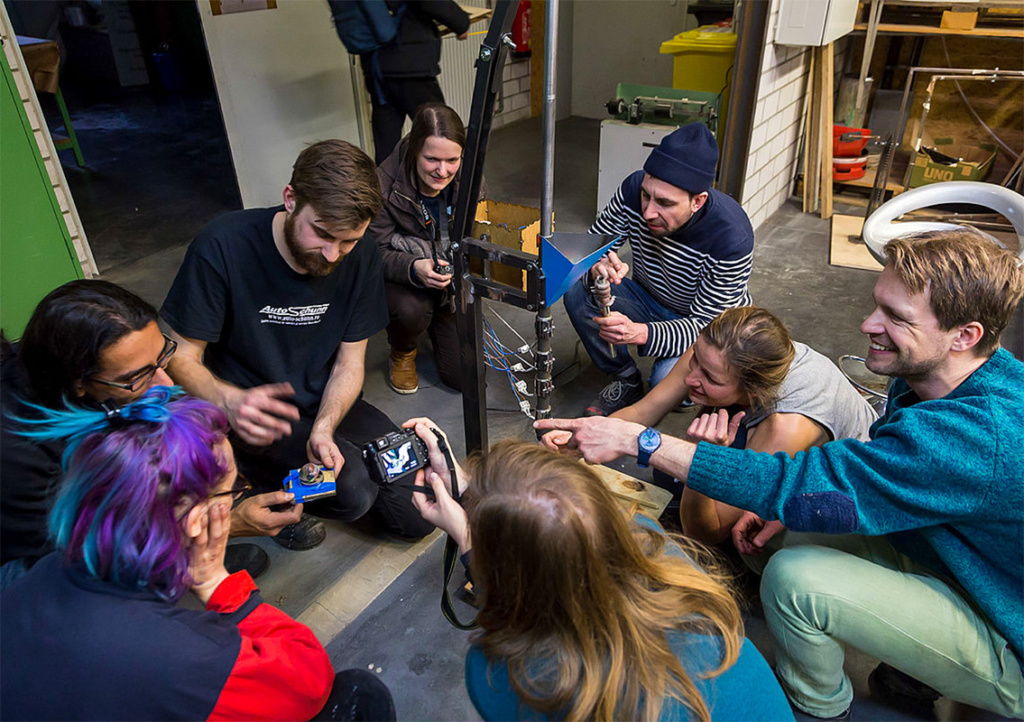
Platform MAKE. initiated and facilitated the building process of a shredder, injection molding and extrusion machine with a dozen art and design students during the Wintersession in 2018. Since then these machines have been used in educational projects and workshops creating awareness for the reuse and up-cycling of valuable plastic materials. Dedicated students and workshop technicians have been involved to create and upgrade this self-made recycling factory.
Read more at
“Precious Plastic x Burg” 02/2018 – at burg-halle.de
“Lecture: Precious Plastic by Katharina Elleke” 02/2018 – at burg-halle.de
“Rückblick auf die Wintersession 02/2018” – at burg-halle.de
“Einsteins Spürnase – Ein transdisziplinärer Forschungstag zu Smart Materials” 02/2018 – at syn-stiftung.org
“Die 1. Mini Maker Faire in Bildern” 07/2018 – at openlab-halle.de
“Trash Jam Session” 11/2018 – at halle14.org
“Landkarte sozialer Innovationen im Land” since 2018 – at sachsen-anhalt.de
“Plastic Recycling Community” since 2018 – at davehakkens.nl
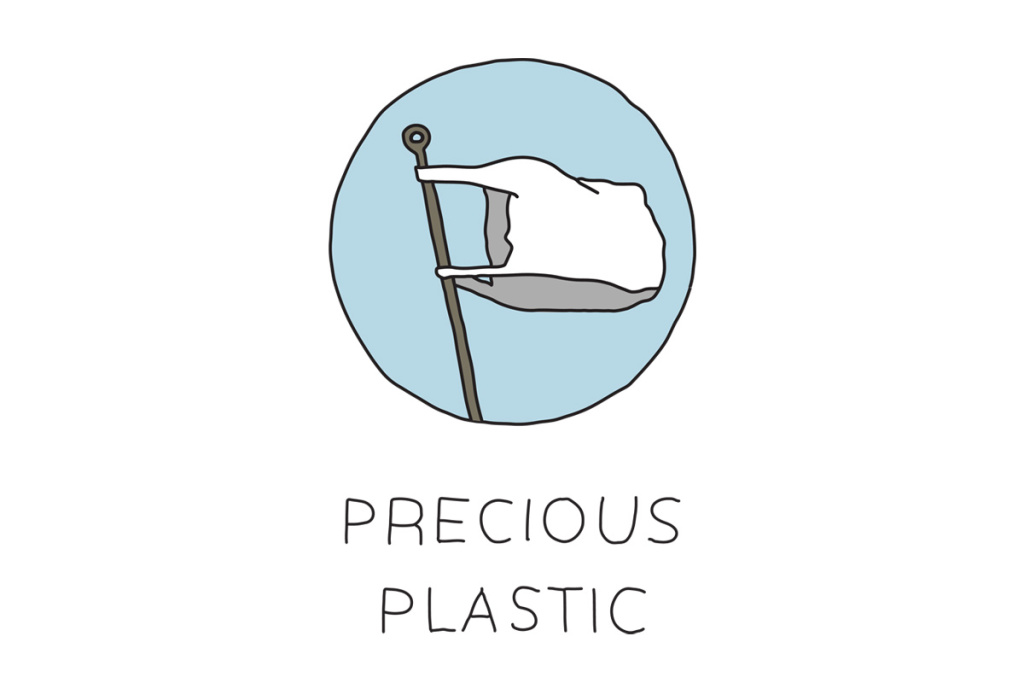
Get involved? – Please write us at make(at)burg-halle.de
Growing as Making: Online Symposium & Hands-on Workshops
Online Symposium on the status quo of biofabrication and its opportunities for art and design education – Join us September 21st
Date: 21.9.2020
Time: 18:00 – 20:30 (CEST)
Location: Online Event
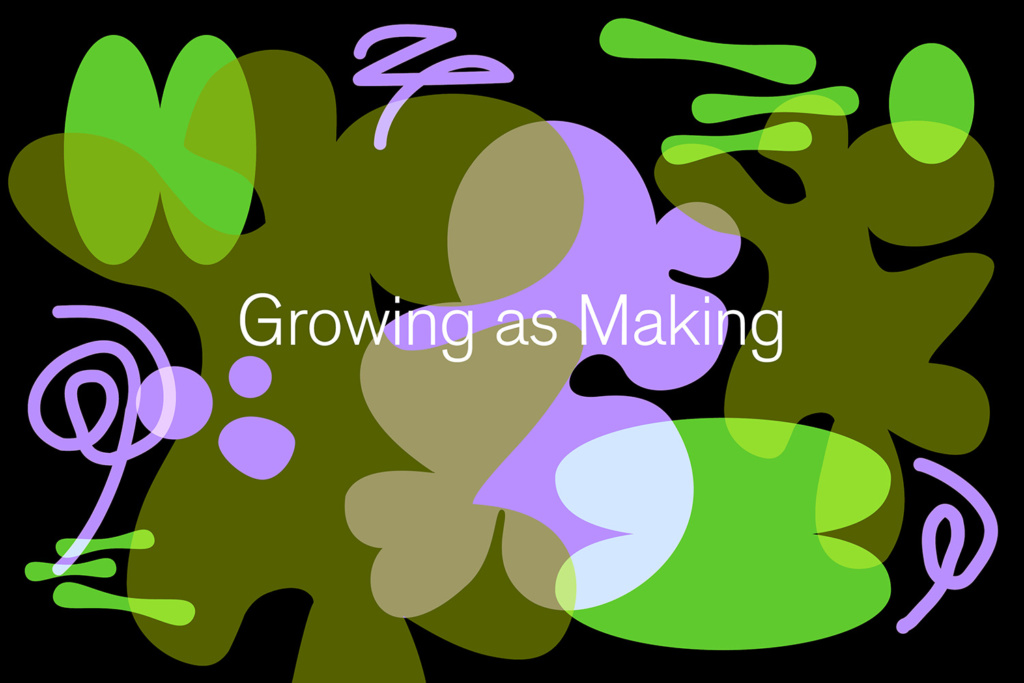
Nature is full of biological systems that have developed and optimized themselves for over millions of years. A large part of its growing processes are happening on a microbial level – invisible to the human eye. In its truest sense we want to take a closer look at this hidden life of microbes, their skills, their qualities and their possible roles in creating more sustainable futures. At this online symposium we bring together five international speakers from different backgrounds to get a better understanding of these so called “living factories” where mycelium, algae, proteins and bio-minerals are the grassroots for new material developments.
This online symposium is the starting point for two on-site workshops initiated by MAKE. – Platform for Materials and Technology Transfer at this year’s summer session at the Burg University of Art and Design Halle. The “How to Grow?” scenarios workshop is organized in collaboration with the cx centre for interdisciplinary studies, AdBK Munich.
This online event can be joined by email registration. Feel free to join us for a backstage look at bio-fabrication and its possibilities for art and design education.
Registration
Please register by mail at make@burg-halle.de until Sunday 20th.
You will receive an email with a streaming-link to join the conference on September 21st.
Program
18:00
Introduction followed by five Micro-talks by Ruben Janssen, Maurizio Montalti, Julia Lohmann, Bernhard Schipper and Filipe Natálio.
19:30 – 20:30
Discussion panel with Q&A by our workshop participants.
Moderation: Karianne Fogelberg (cx centre for interdisciplinary studies, AdBK Munich) and Prof. Aart van Bezooijen (MAKE. – Platform for Material and Technology Transfer, BURG)
Speakers
Ruben Janssen
Micropia, Netherlands – micropia.nl
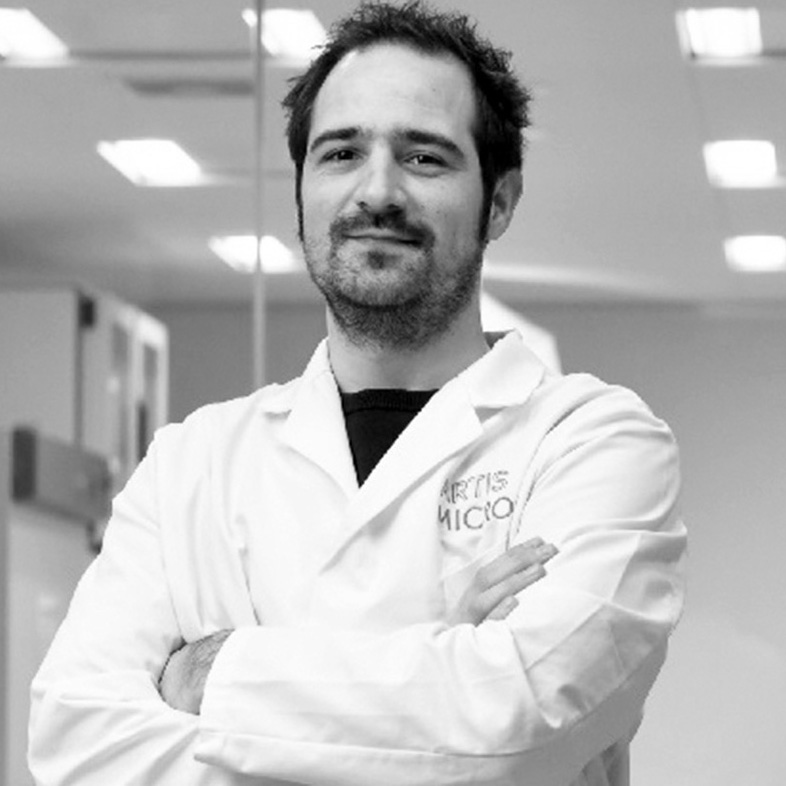
Ruben Janssen is biologist and educator at ARTIS Amsterdam Royal Zoo and at Micropia, the world’s first only museum of microbes in the world. With a master degree in evolutionary biology and working experience in education, scientific research and Micropia’s laboratory, he provides input and content in daily operations, new exhibits, grants and collaborations of the museum. He is also responsible for the content of news items on the website and social media posts of Micropia.
Maurizio Montalti
MOGU, Italy – mogu.bio
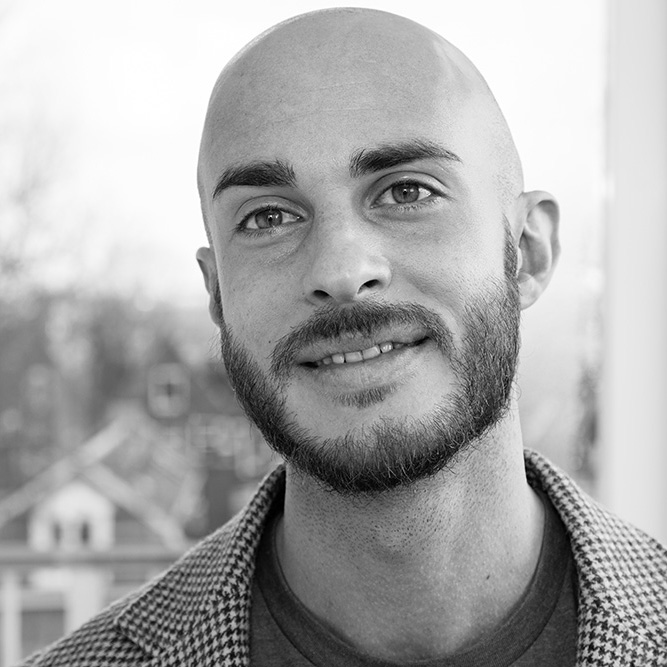
Maurizio Montalti is a designer, researcher, educator and entrepreneur. He is founder and creative director of Amsterdam-based practice Officina Corpuscoli (2010), where he investigates design-research subjects, reflecting on contemporary material culture as well as on the relationship between human and non-human agents, as part of the relational complexity of the dynamic ecosystem we all belong to. Maurizio is also co-founder, designer, and R&D director of MOGU, an innovation-driven design company dedicated to the creation of high-performance solutions and products deriving from fungi. His work has received many awards and has been on show in museums such as the Museum of Modern Art (New York), Centre Pompidou (Paris), Design Museum (London), Triennale (Milano), MAXXI (Rome), and the Museum of Applied Arts (Vienna).
Julia Lohmann
Department of Seaweed, Finland – julialohmann.co.uk
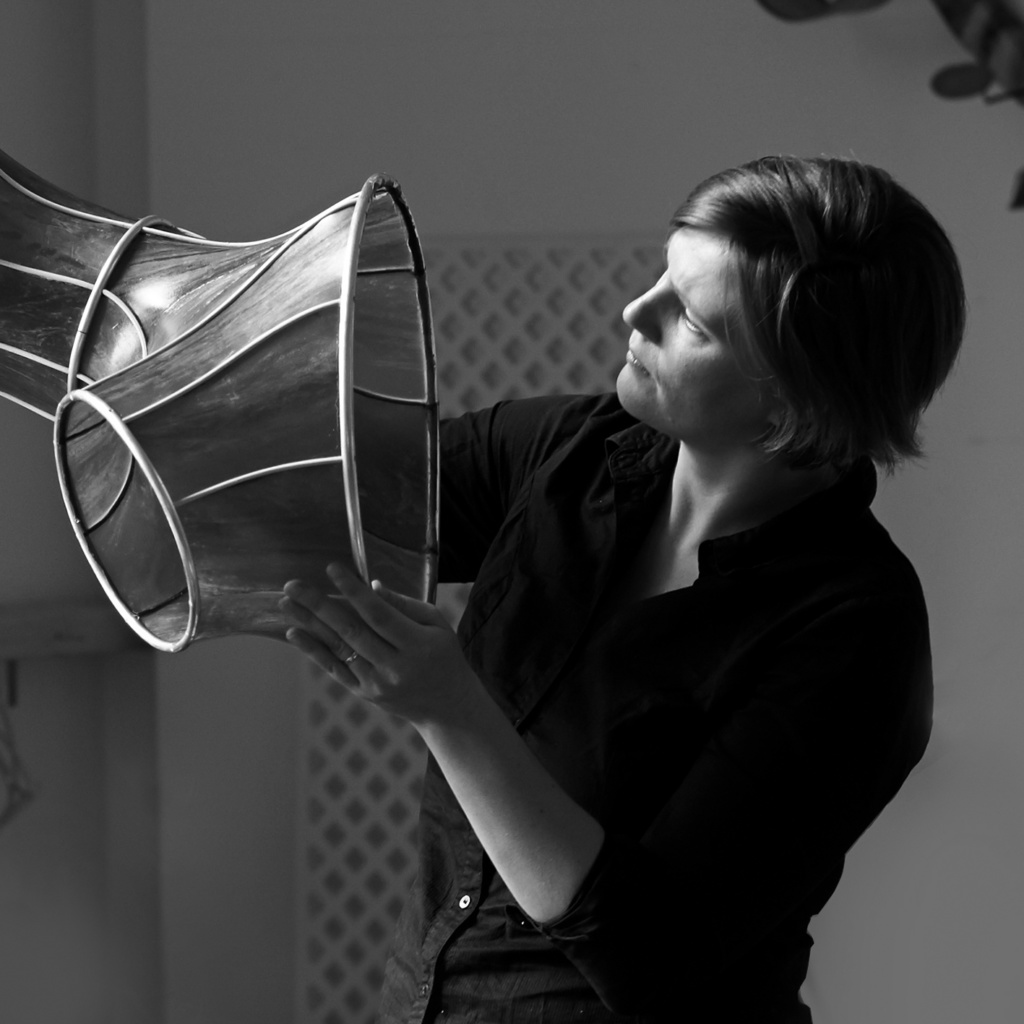
Julia Lohmann is a Professor of Practice in Contemporary Design at the Aalto University School of Arts, Design and Architecture in Finland. She investigates and critiques the ethical and material value systems underpinning our relationship with flora and fauna. Julia’s research interests include critical practice and transition-design, bio materials, collaborative making, museums and residencies, embodied cognition and practice as research. As designer in residence at the Victoria and Albert Museum in 2013, she established the Department of Seaweed, an interdisciplinary community of practice exploring the marine plant’s potential as a design material. She holds a PhD in Innovation Design Engineering from the Royal College of Art, London.
Bernhard Schipper
Scobytec, Germany – scobytec.com
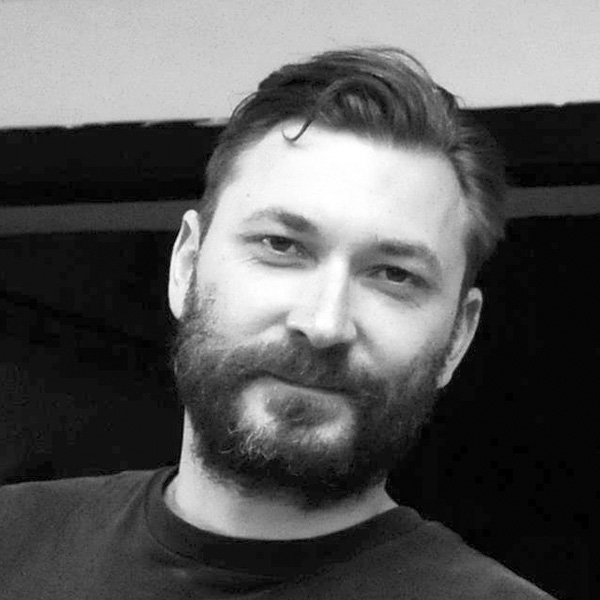
Bernhard Schipper co-founder of ScobyTec which is currently based in Leipzig, Germany. ScobyTec is developing alternative materials based on bacterial cellulose to realize (vegan) leather substitutes, fibers as substitutes for cotton products and wood-based viscose, bioplastics and composites through biofabrication. We provide scalable process engineering and refining methods that are energy efficient and location independent. ScobyTec received several awards such as the IQ Innovation Prize Leipzig, Hugo Junkers Research and Innovation Award and SMILE Business Award 2019.
Filipe Natálio
Weizmann Institute of Science, Israel – weizmann.ac.il
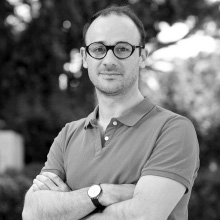
Dr. Filipe Natálio is interested in both ancient and modern materials. At the Scientific Archaeology Unit he is using artificial intelligence based algorithms to study prehistoric stone tools in order to better understand our pre-historic ancestors. Another focus of his work explores new and alternative bio-based fabrication methods that combine molecular design with plant sciences towards material farming. A good example is the use of plants (e.g. cotton) as “factories” for the biological fabrication of a wide diversity of composite materials with tailored functionalities (e.g. smart textiles) allowing further exploitation of wide range of combinations between molecular design and biological systems.
Workshops
“How to Grow?”
“Wie Wachsen?” Scenarios Workshop by MAKE. – Platform for Materials and Technology Transfer (BURG) in collaboration with Karianne Fogelberg from the cx centre for interdisciplinary studies (AdBK Munich).
“Growing as Making”
Mycelium Materials Workshop by MAKE. – Platform for Materials and Technology Transfer (BURG) supported by Maurizio Montalti (MOGU).
Initiative
MAKE. – Platform for Material and Technology Transfer
Prof. Aart van Bezooijen, Ulrike Mäder, Lorenz Ebersbach
Web: burg-halle.de/make
Contact: make@burg-halle.de
Burg Giebichenstein University of Art and Design Halle
Neuwerk 7, 06108 Halle (Saale), Germany
in collaboration with
cx centre for interdisciplinary studies
Karianne Fogelberg
Web: adbk.de
Academy of Fine Arts, Munich
Akademiestraße 2–4
80799 Munich, Germany
Thanks
Workshop Guests
Anthotypie (Dagie Brundert)
BurgLabs – SustainLab ( Ina Turinsky, Henning Françik, Lukas Keller) and BioLab (Maja Rischer, Johann Bauerfeind)
Tech, Admin
Burg gestaltet! Qualitätspakt Lehre (Simon Krautheim, Birgit Watzka)
Burg IT Services (Michael Spindler, Steffen Schwenke)
Visuals
Vreni Knoedler
Communication
Burg Press Office (Silke Janßen)
Email: presse@burg-halle.de
Die Paludikultur-Residenzen starten im Tiny House im Greifswalder Moor
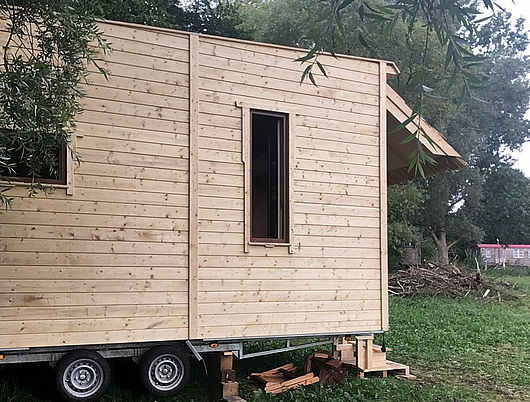
Erstmals ermöglichen das Greifswald Moor Centrum und die Burg Giebichenstein Kunsthochschule Halle zwei Burg-Absolventinnen in diesem Sommer eine Paludikultur-Residenz. Die Residenz soll eine künstlerische oder gestalterische Interpretation des Themas Paludikultur ermöglichen. Dabei liefern Wohnen und Umgebung Inspiration. … mehr
Materialautomat @Burg Galerie
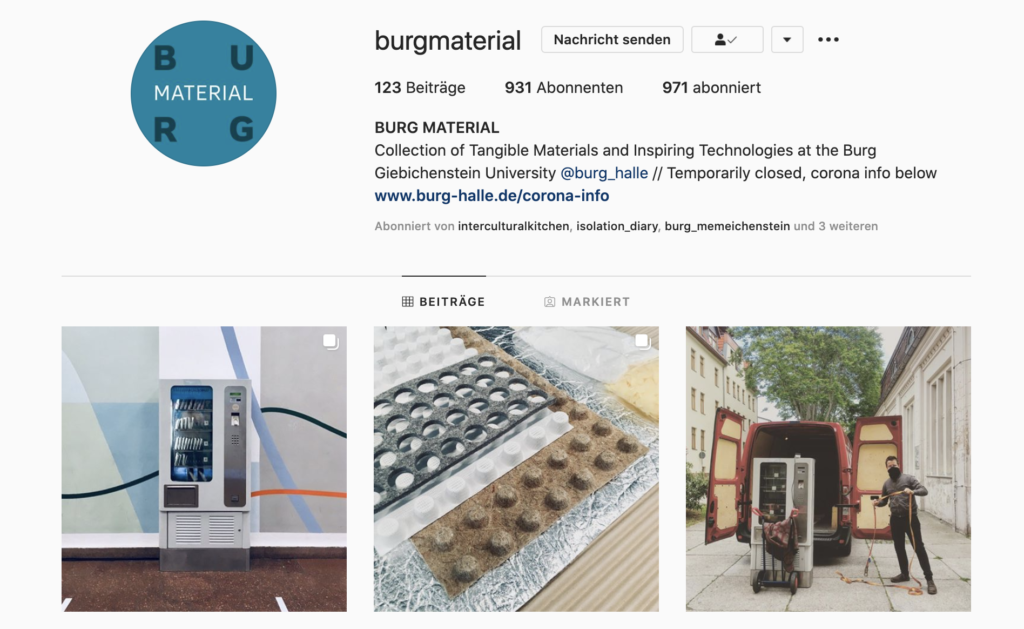
UNBOXING – Sustainable Packaging Symposium
Sharing and discussing new materials and processes for more sustainable packaging design with companies, technologists and green minded entrepreneurs
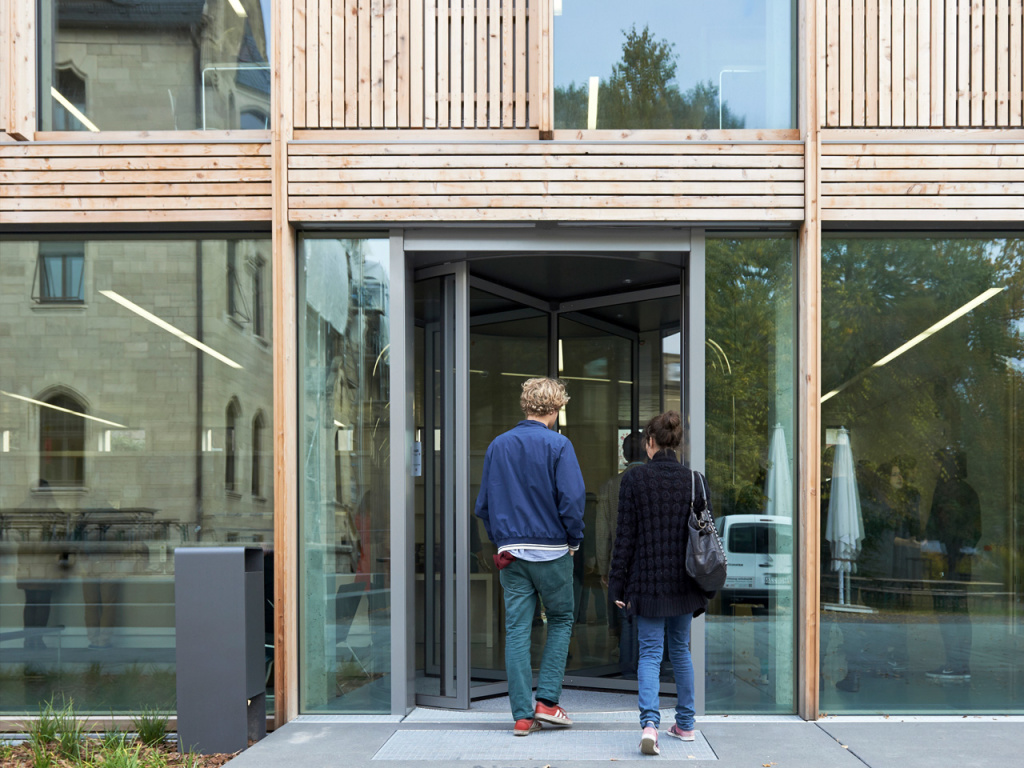
Packaging can be a great help to protect items during transportation, providing information and showcasing its content. On the other hand, due to their relatively short lifespan, they are a growing problem due to their use of resources and waste, often with difficulties to dispose or recycle. How do we deal with this?
During this public sustainable packaging symposium at Burg Giebichenstein University of Art and Design Halle we brought together manufacturers of sustainable packaging alternatives, a technology expert, a sustainable entrepreneur and zero waste store representative, to discuss the current status and future outlook of more sustainable packaging design.
Besides sharing existing solutions and discussing new developments with the public, this symposium was the starting point for a three-day packaging prototyping workshop at the Burg Giebichenstein University of Art and Design Halle in collaboration with its startup center Designhaus Halle.
Impressions
Material Market: Exhibition of sustainable packaging materials Room: Burg Material Collection (1st floor, Library)
-
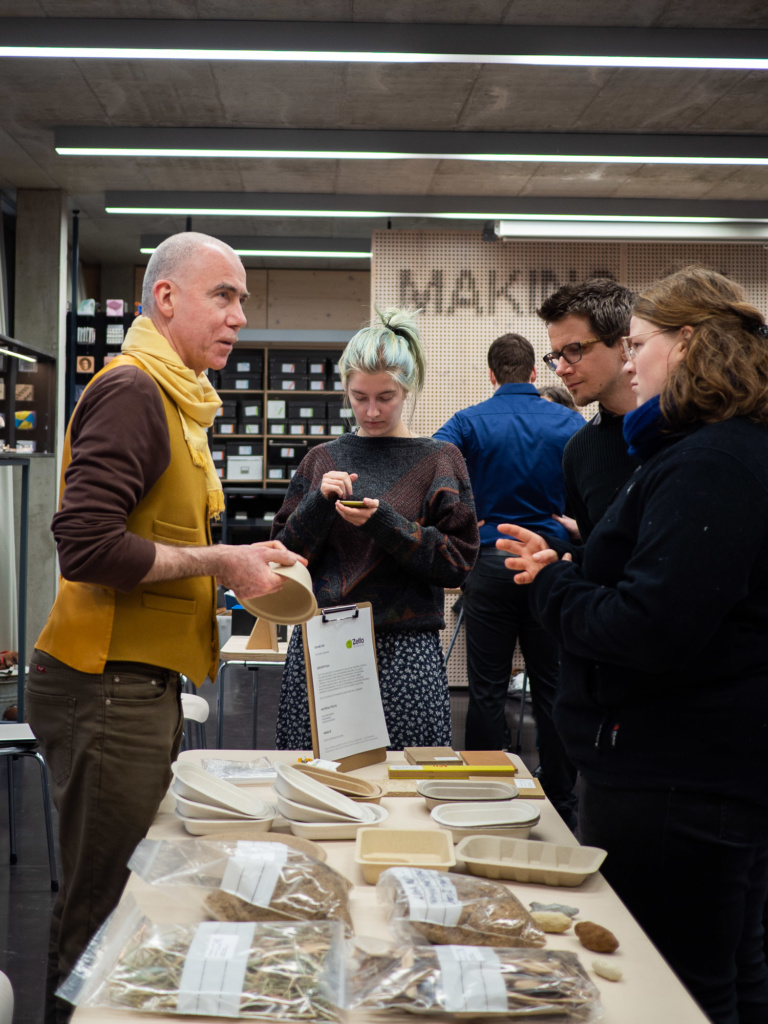
Exhibitor: Zelfo Technology -
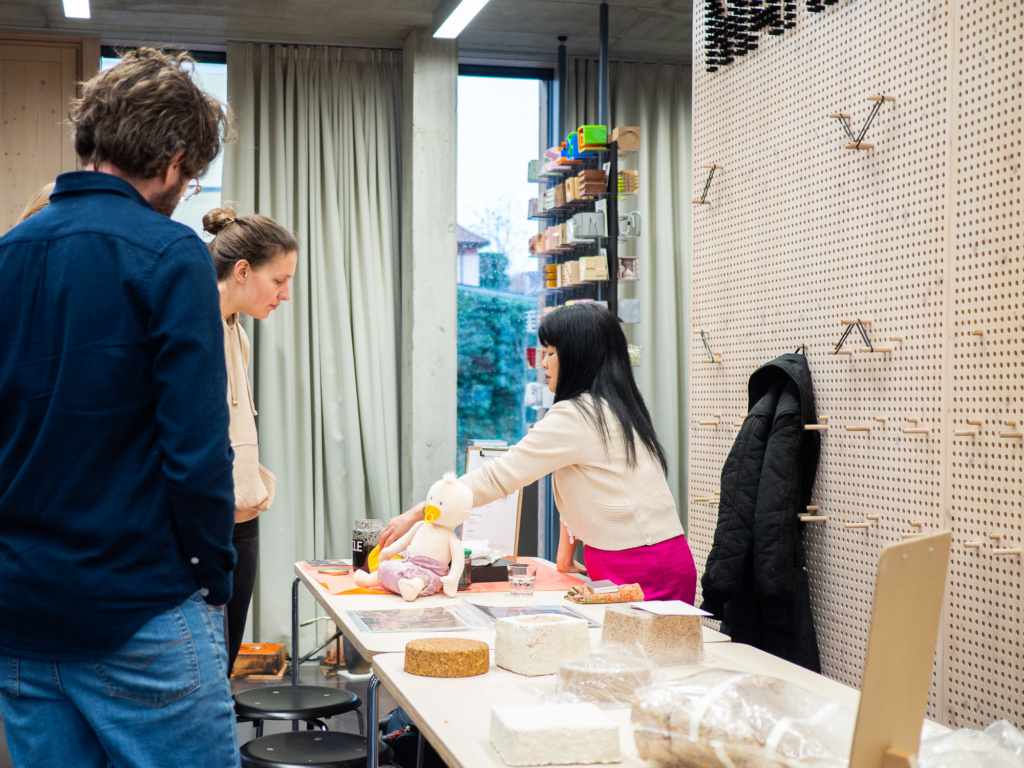
Exhibitor: DYCLE -
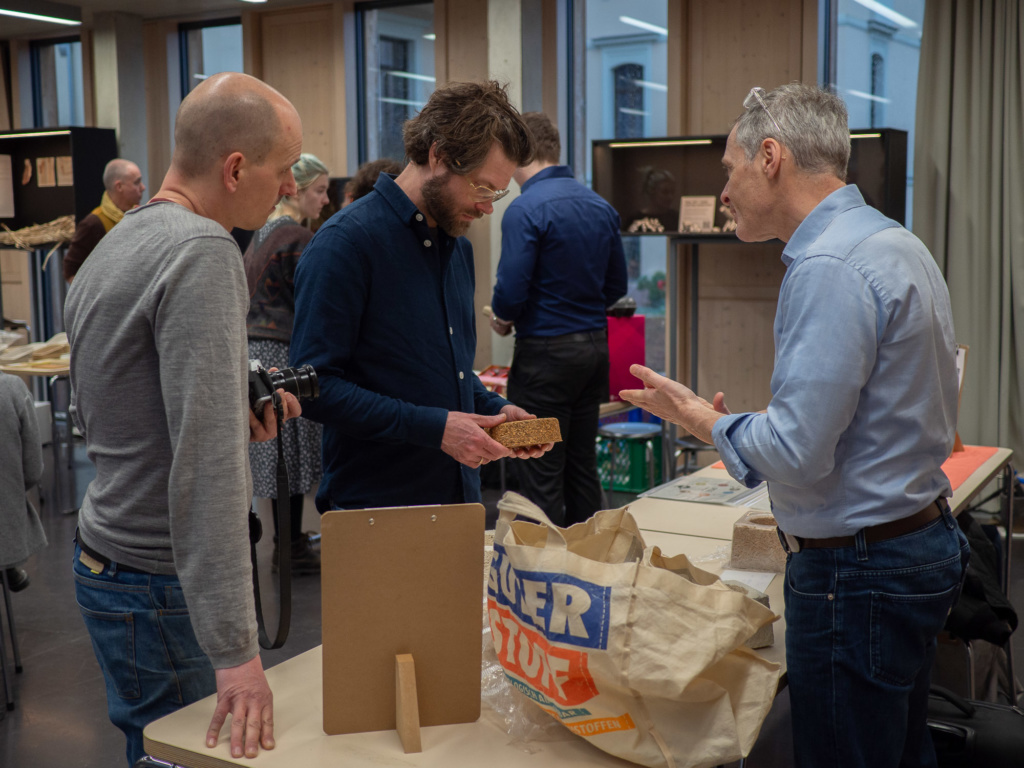
Exhibitor: Krown -
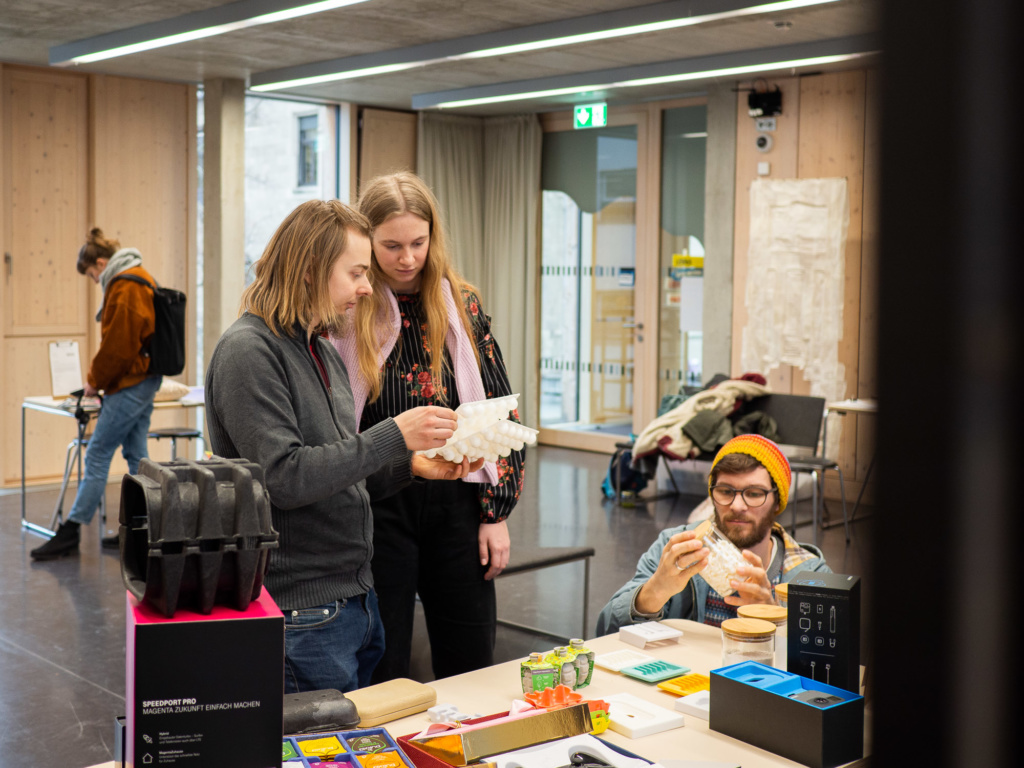
Exhibitor: PaperFoam -
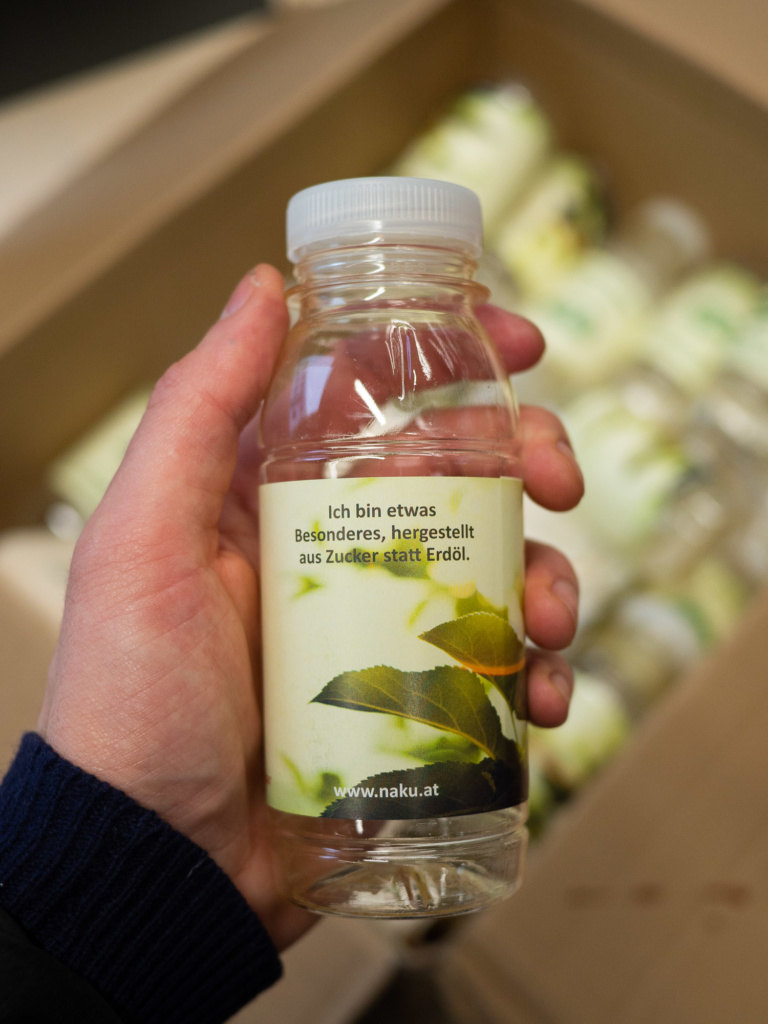
Exhibitor: NaKu
Symposium: Lectures (English) followed by Q&A with the audience Speakers: Krown – Jan Berbee, PaperFoam – Jasper Groefsema, Zelfo Technology – Richard Hurding, DYCLE – Ayumi Matsuzaka, Abgefüllt – Marcus Moos, Moderation – Michael Antons and Prof. Aart van Bezooijen Room: Seminar Room (ground floor, Library)
Exhibitors and Speakers

Krown Krown is a biotech company that makes products with Mycelium and organic waste. Krown’s primary markets are interiors, packaging and building materials. With Krown’s mycelium composites, many plastics can be replaced with fully natural and home compostable alternatives. Krown is located in Hilversum with production facilities in Hedel, The Netherlands. krown.bio

PaperFoam PaperFoam can be described as a foamed, injection molded paper. It is an industrial starch based product with an extremely low carbon footprint. PaperFoam is both home and industrial compostable and also recyclable with paper, making the impact on the environment as small as possible. PaperFoam is based in The Netherlands with production facilities in Asia, North America and Europe. paperfoam.com

Zelfo Technology Zelfo Technology is a pioneer in cellulosic material science. They are focused on re-engineering natural cellulose fibers to enhance performance properties, like material strength. They can use any source of natural fibers, including agricultural, industrial and post-consumer waste, encouraging the use of renewable and biodegradable materials as an alternative to plastic based solutions. Zelfo is based in Joachimsthal, Germany. zelfo-technology.com

DYCLE DYCLE is building communities around parents and babies, offering a bio-based, fully compostable, diaper inlay. This is a fundamentally new way of how baby diapers are produced, used and recycled, or rather up-cycled, when they are no longer a waste but a nutrient for plants, transformed into fertile soil. DYCLE is based in Berlin, Germany. dycle.org

Abgefüllt Zero waste stores enable the purchase of loose goods in order to avoid packaging waste. Customers can bring their own containers to purchase the loose assortment, which are filled independently in the store. Abgefüllt is the first zero waste store based in Halle (Saale). abgefuellt-halle.de
NaKu NaKu uses a corn-based starch compound to produce breathable fresh-storage bags and beverage bottles. NaKu bottles use a starch-based Polylactic acid (PLA) as raw material based on cornstarch. NaKu processes its compounds with injection molding, film blowing, extrusion and thermoforming. NaKu is based in Wiener Neustadt, Austria. naku.at
Presentations
Please visit issuu.com to see the presentation slides online.
Organization
This project is a collaboration between the Designhaus Halle / Burgshop (Michael Antons) and Burg Material Collection (Prof. Aart van Bezooijen). The material experiments are supported by Platform MAKE. (David Oelschlägel and Lorenz Ebersbach).
Photo credits: Nils Krüger
More Information
Burg Material Collection Burg Giebichenstein University of Art and Design Neuwerk 7 06108 Halle (Saale) Email: material@burg-halle.de Website: burg-halle.de/unboxing
Sustainable Packaging Symposium – February 24th
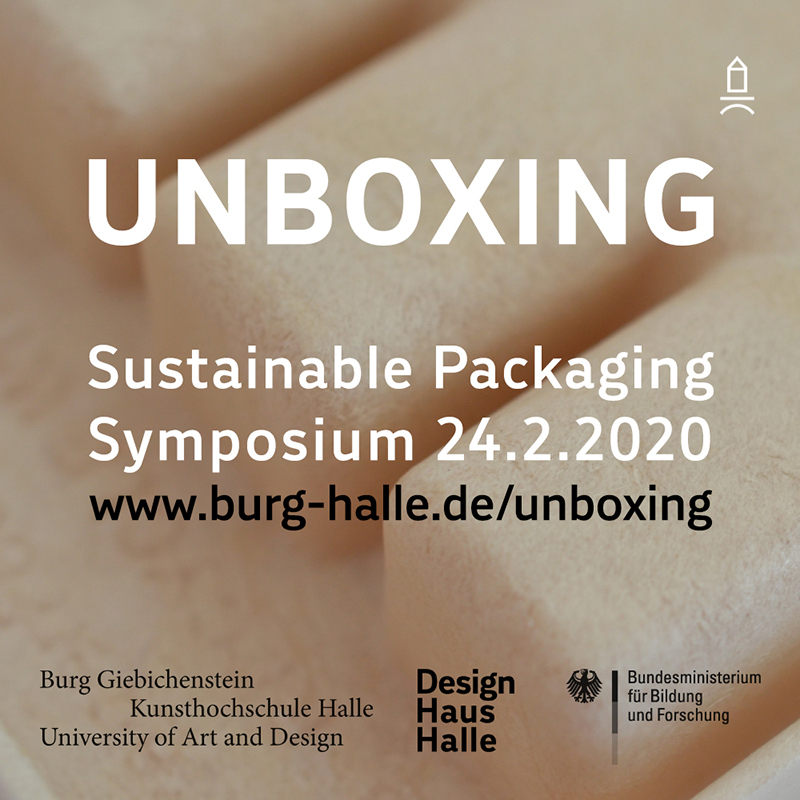
Get in touch with new materials and processes for more sustainable packaging design. Jan Berbee, Jasper Groefsema, Richard Hurding, Ayumi Matsuzaka, Marcus Moos with Michael Antons and Prof. Aart van Bezooijen – Read more at burg-halle.de/unboxing
Workshops: “UNBOXING” and “PALUDIKULTUR” at Wintersession 2020
This year’s Wintersession Platform MAKE. will be offering two material workshops. The first workshop focuses on hands-on work with Paludiculture materials sourced from wet agriculture and forestry on peatlands (see PALUDIKULTUR workshop). The second workshop is all about exploring bio-based materials to develop sustainable packaging prototypes (see UNBOXING workshop).
- Please note: There are still a few seats left for both workshops. BURG art and design students can still apply here for UNBOXING and apply here for PALUDIKULTUR (final deadline for applications 24.2.2020).
Those who are not able to participate in the material workshops are welcomed to join us on 19.2.2020: Lecture by Susanne Abel (on Paludiculture) and 24.2.2020: UNBOXING Symposium (on sustainable materials for packaging design). These are public events – no registration required.
PS: For a closer look at the investigations and (wet) material culture of peatlands, enjoy the video below featuring palaeoecologist Hans Joosten from the University of Greifswald.
Lecture: Bioplastics by Franziska Müller-Reissmann and Mario Pellin (+ Call for Bioplastic Exhibits)
This lecture (see below) comes with a call for bioplastic-based projects and products for our upcoming materials exhibition. You can read more at www.burg-halle.de
Deadline for applications: February 3, 2019
